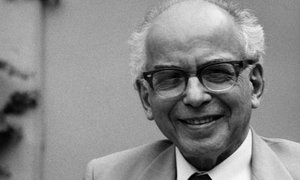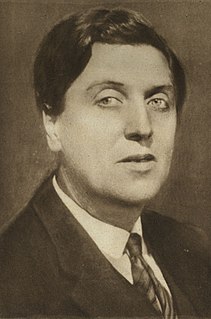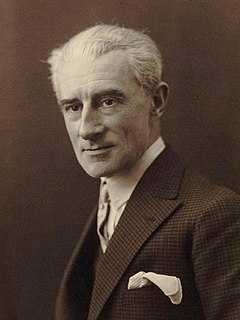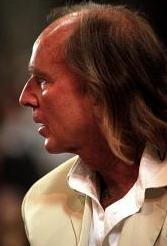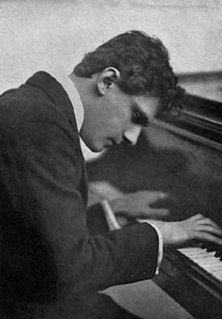Top 19 Schoenberg Quotes & Sayings
Explore popular Schoenberg quotes.
Last updated on November 15, 2024.
After I had been studying with him for two years, Schoenberg said, ‘In order to write music, you must have a feeling for harmony.’ I explained to him that I had no feeling for harmony. He then said that I would always encounter an obstacle, that it would be as though I came to a wall through which I could not pass. I said, ‘In that case I will devote my life to beating my head against that wall.’
If... [Alban] Berg departs so radically from tradition, through his substitution of a symmetrical partitioning of the octave for the asymmetrical partionings of the major/minor system, he departs just as radically from the twelve-tone tradition that is represented in the music of Schoenberg and Webern, for whom the twelve-tone series was always an integral structure that could be transposed only as a unit, and for whom twelve-tone music always implied a constant and equivalent circulation of the totality of pitch classes.
In fact, the influence of Schoenberg may be overwhelming on his followers, but the significance of his art is to be identified with influences of a more subtle kind - not the system, but the aesthetic, of his art. I am quite conscious of the fact that my Chansons madécasses are in no way Schoenbergian, but I do not know whether I ever should have been able to write them had Schoenberg never written.
[Charlie "Bird" Parker] would sit down and ask [Phil Wood], "What do you think about this whole secondary Viennese school with Schoenberg, Berg and Webern? Are you listening to that music and what do you feel about it?" These were the conversations that he was having. And he also said, what he learned from Charlie Parker was, not that he studied with him in the formal sense, is that the first thing that Charlie Parker would always ask was, "Did you eat today?".
I think there's just been this "thing" that's developed, this way that we have of talking about our music that alienates people. And I fall into that too! I learned that in graduate school. You just talk about your music in a specific way, and that separates people from you. But some composers like that. Schoenberg liked that. He wanted to feel that he was making music for an elite few. That's fine for him, but I want to set myself free from that sort of attitude.
On Sunday 8 April 1945, he had just finished conducting a service of worship at Schoenberg, when two soldiers came took him away. As he left, he said to another prisoner, This is the end - but for me, the beginning - of life. He was hanged the next day, less than a week before the Allies reached the camp.


